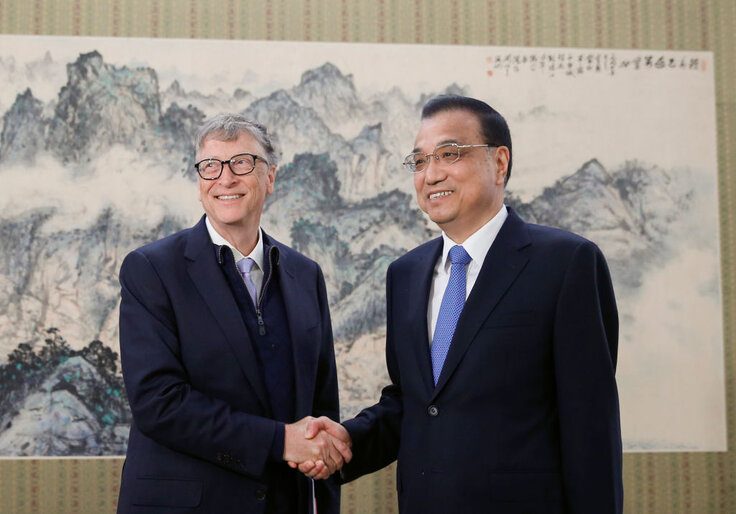Microsoft Responds to China Cyber Attack by Expanding Business in China
Hack of 60,000 customers won't affect Microsoft's cozy relationship with CCP

Microsoft responded to a Chinese government hack that compromised more than 60,000 of its customers by expanding operations in the repressive regime.
Microsoft acknowledged on March 2 that Chinese "state-sponsored" hackers used vulnerabilities in Microsoft Exchange's software to install malware and access the emails of thousands of victims. The tech company has nevertheless barreled forward in its Chinese business plan, announcing on March 4 that it will expand its cloud computing service Azure. The move is meant to "empower" Chinese citizens, who live in a country with some of the most heavily censored and monitored webspace in the world.
"Our intelligent, trustworthy, and neutral cloud platform has been empowering hundreds of thousands of developers, partners, and customers from both China and the world to achieve more with technical innovation and business transformation," Alain Crozier, Microsoft's head for the Greater China Region, said in a statement.
The Azure expansion is the latest sign that the Chinese hacking campaign has had little impact on Microsoft's decades-long relationship with China. The U.S.-based tech company has outsourced a large portion of its research and development department to the authoritarian country, where it has had a presence since 1992. The company also partnered with a Chinese military university to conduct research into artificial intelligence.
Microsoft declined a request for comment.
The global cyber attack has claimed a number of high-profile victims, including the European Banking Authority and thousands of businesses. The Biden White House said the hackers remain an "active threat" and that companies should patch up their softwares as soon as possible. The Chinese government has so far denied responsibility for the hacking campaign.
The Azure expansion plan will build a new cluster of data centers in northern China, speeding up the cloud service for Chinese users in the region, according to a press release. The cloud service employs Chinese company 21Vianet as a local partner. As China's leading data service provider, 21Vianet also conducts business with other Chinese tech companies such as Alibaba and Huawei, which U.S. officials say act as conduits for Chinese state espionage.
The Azure cloud computing service includes facial recognition software, a feature that might be attractive for authoritarian regimes. The company touts that "no machine learning expertise is required" to operate the program, which can search through a repository of up to one million people. Chinese authorities are increasingly using facial recognition to police their citizens, including the Muslim Uighurs in Xinjiang.
Microsoft has nurtured a close relationship with Chinese entities over the course of nearly three decades, counting more than 17,000 partners in the authoritarian country. Despite the pandemic, Microsoft has continued to recruit even more local business partners. In December, Microsoft said it partnered with Huawei's spinoff company to build laptops in the country.
Microsoft also built its largest R&D base outside of the United States in China, employing more than 3,000 engineers and researchers located across four separate Chinese cities. The American company said its Chinese R&D division will contribute to China's prosperity."Microsoft Asia-Pacific R&D Group's teams are spread across the region … Located in tech parks and recognized hubs for innovation, these campuses are strategically positioned to take advantage of— and contribute to— China's rapid transformation to an innovation economy," the company said on its website.




1 comment:
very good information, in this world of great technological developments, it is best to take care of all threats through cybersecurity.
Post a Comment